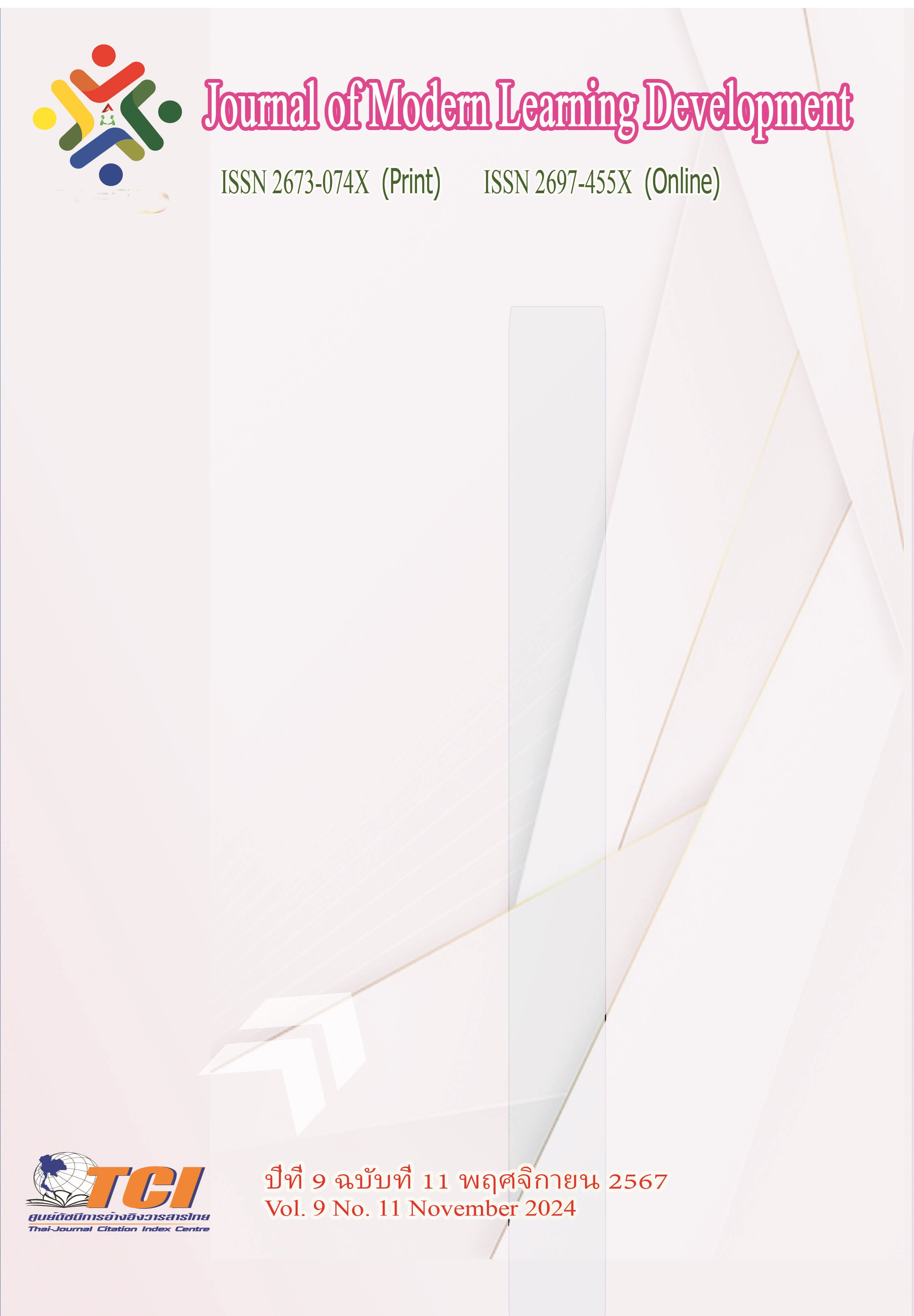Time-driven Activity-based Costing and Sustainable Business Practices: A Case Study of the Restaurant in Sriracha District, Chonburi Province
Main Article Content
Abstract
Product costing is crucial for business operations as it not only enhances operational efficiency but also strengthens long-term competitiveness. This research article thus aims to: 1) study the application of Time-Driven Activity-Based Costing (TDABC) in restaurants and classify menu items based on the Menu Engineering concept, and 2) study the level of knowledge and understanding of entrepreneurs in applying the TDABC system and sustainable business practices. This research is a qualitative study using a case study of a restaurant business in Siracha District, Chonburi Province. The researcher employed documentary analysis, Time-Driven Activity-Based Costing analysis, and in-depth interviews as tools for conducting this study. The research findings reveal that applying TDABC improves the accuracy of product cost analysis and assists in classifying menu items according to the Menu Engineering concept, which entrepreneurs can utilise for strategic business planning. However, TDABC may not be suitable for certain activities, such as depreciation and rent, as these activities may not be directly related to time. This research also found that although entrepreneurs are ready to implement TDABC, they lack sufficient understanding, which may lead to errors in product cost determination. Additionally, the business possesses the knowledge, understanding and readiness to implement sustainable practices, contributing to long-term value creation for the company, society, and the environment.
Article Details
References
Abd Rahman, M., Mohamad, E., & Abdul Rahman, A. A. (2019). Enhancement of Time-Driven Activity–Based Costing (TDABC) by using Simulation in Manufacturing Process towards Industry 4.0. International Journal of Innovative Technology and Exploring Engineering. 8 (10), 1895-1900.
Ardiansyah, I. (2020). The Application of Menu Engineering Technique in Determining Marketing Strategy at the Den of Kalaha Restaurant Jakarta. Journal of Business and Entrepreneurship. 8 (1), 18-39.
Cooper, R., & Kaplan, R. S. (1988). Measure Costs Right: Make the Right Decisions. Harvard Business Review. 66 (5), 96-103.
Ganorkar, A., Lakhe, R., & Agrawal, K. (2018). TDABC for a manufacturing environment: A case study. Tékhne. 16 (2), 2-10.
Gervais, M., Levant, Y., & Ducrocq, C. (2010). Time-Driven Activity-Based Costing (TDABC): An Initial Appraisal through a Longitudinal Case Study. Journal of Applied Management Accounting Research. 8 (2), 1-20.
Kaplan, R., & Anderson, S. (2004). Time-Driven Activity-Based Costing. Harvard business review. 82, 131-138, 150.
Kasavana, M. L. (1990). Menu engineering : a practical guide to menu analysis. Publisher: Okemos, Mich.: Hospitality Pub. 1990 Rev. edn.
Quinn, M., Elafi, O., & Mulgrew, M. (2017). Reasons for not changing to activity-based costing: a survey of Irish firms. PSU Research Review. 1 (1), 63-70.
Şeker, Y., & Şengür, E. (2021). The Impact of Environmental, Social, and Governance (ESG) Performance on Financial Reporting Quality: International Evidence. Ekonomika. 100 (2), 190-212.
Vedernikova, O., Siguenza-Guzman, L., Pesántez, J., & Arcentales-Carrion, R. (2020). Time-Driven Activity-Based Costing in the Assembly Industry. Australasian Accounting, Business and Finance Journal. 14 (4), 3-23.
กระทรวงการท่องเที่ยวและกีฬา. (2567). Tourism Situation in March 2024. ออนไลน์. สืบค้นเมื่อ 15 สิงหาคม 2567. แหล่งที่มา: https://www.shorturl.asia/cBD4L.
สมบูรณ์ สาระพัด (2561). เปรียบเทียบการคิดต้นทุนแบบดั้งเดิมและต้นทุนกิจกรรม. วารสารการวิจัยการบริหารการพัฒนา. 8 (2), 61-67.
สมบูรณ์ สาระพัด และคณะ. (2560). การศึกษาการใช้ระบบต้นทุนกิจกรรมตามเวลา. วารสารการบัญชีและการจัดการ มหาวิทยาลัยมหาสารคาม. 9 (1), 79-89.


